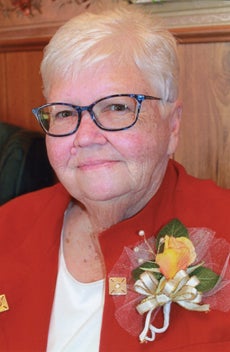Why are we a divided nation and full of anger?
Published 2:42 pm Tuesday, July 7, 2020
|
Getting your Trinity Audio player ready...
|
This past weekend, the protests that have so divided this country and spew with hate, anger, and unrest, and in some cases, destruction and looting, found a place in our town. Thankfully, it was a peaceful protest, and those who attended were merely exercising their right to “peaceful assembly” guaranteed by the United States Constitution.
The protests in our cities and towns depict a nation divided, stymied by the rigidity of beliefs and feelings. Our feelings and beliefs are precious to us and define who we are. People are in the streets, not only in America, but in the streets around the world declaring Black Lives Matter and demanding change, particularly methods of policing.
No doubt, change is in the wind. However, it is important to look at the roots of feelings and intuition. New laws, the tearing down of statues, which are a part of our history, will not change the feelings of many Americans. History is something we build on, not tear down. It is a chance to look at where we erred and try to do better.
It is important that at this moment in history we ask ourselves and each other why we feel the way we do. How have family traditions, stories, and cultural norms, personal experiences, and understanding of American history formed our feelings about what is right and what is wrong. It is time to listen to each other, understand why we feel the way we do, and if necessary, make a change.
Often, I talk to Pearl Smith, an Elizabethton black woman in her nineties — a hard worker, mother, and a devout Christian and church-goer. Pearl is my friend and sister in Christ. Our skins are a different color, but beneath her black skin and my white skin are hearts that love and appreciate each other. We enjoy talking with each other, laughing with each other, and sharing our hearts with each other.
When I was a young girl in Sunday School, I learned to sing the song, “Jesus loves the little children of the world…red and yellow, black and white, they are precious in his sight. Yes, Jesus loves the little children of the world.” That song has stayed with me all these years.
Truthfully, I have never interacted with a lot of black people, nor red or yellow people. Most of the students in my schools at Valley Forge Elementary and Hampton were white. I’ve not even worked with a lot of people of different skin colors. But, that does not mean I cannot love them. My work has brought me into contact with people different in color, such as Pearl Smith and Saundra Davis, who for many years worked at City Hall as secretary to the city manager. Saundra was always helpful and so full of joy. She was a delight to talk to.
No matter who we elect as president in November, whether it be Trump or Biden, it is not going to change America unless hearts are changed. This election year is not John F. Kennedy’s “Time for Greatness” or Ronald Reagan’s “Morning in America.” This campaign year, the unofficial theme is fear — of the other side, other races and ethnic groups, and most of all, the person running in the other party.
Someone recently wrote: “Partisanship a generation ago was something that people took to the ballot box. Today, it is something that people take to work, take to school, take to church, and even take to bed with them.”
The COVID-19 pandemic has changed church as we know it. It has made us come face to face with the fact that the church is not the building. It is Christian people, who live, work and interact with others outside the building. The building is where we worship. Outside the building is where our Christianity is on display. It shows up in how we treat others, how we talk to others, and how we serve others. If we have not learned to love and forgive outside the building, then our worship inside the building is null and in vain.
The November election is not the answer to many of the problems we face as a nation, but we the people are the answer. We must learn to love our neighbor as ourselves. Until we do, we will fight, protest, and continue to be divided and at odds with one another.
(Rozella Hardin is Editorial Director of the STAR.)


